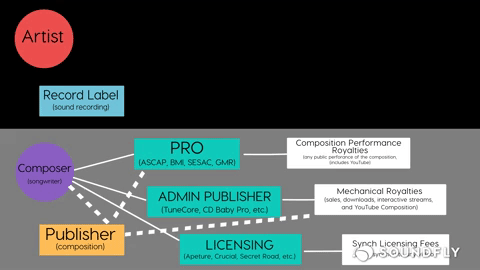'Songs as an Asset Class': Can music be as valuable as gold or oil? 👑
How can songs be an asset class? What is the business model? Why is it appealing? + Ep 4 and 5 of the Podcast!
Hi, Ravdeep here. 👋
Perfunktory is a newsletter that aims to break down trending subjects in the field of Music, Technology, Gaming and Culture as perfunctorily as possible. We also have a podcast in the works which can be found here on Spotify, Apple Podcastsand Google Podcasts.
Sign up below for free.👇
Welcome back to a brand new issue of the Perfunktory newsletter. We are back after a brief gap but the podcasts did not stop. Thank you so much for all the support that you've given on the podcasts and even the previous newsletter issue which got somewhat viral on twitter!
What’s The Hype with Evergrande?
Apple Podcasts | Google Podcasts | Amazon Podcasts
What’s The Hype with The Great Attrition/Resignation?
Apple Podcasts | Google Podcasts | Amazon Podcasts
How many of your memories are attached to music or songs by a particular artist or a band? Knowingly or unknowingly, music plays a big role in our lives and it’s something that can be easily played in the background unlike video content, gaming etc that you have to experience sitting down or in an engaged manner.
The global economy has seen a significant downturn due to the COVID-19 pandemic. The music industry in particular has not been immune to the effects of regular lockdowns, thus decimating live performances and shows, which plays a crucial role in the lives of musicians. But one part of the industry has managed to keep it afloat due to a large listener base and those are the revenues that are generated from the various online music streaming services. This brings up a unique opportunity for music to be looked at as an alternative investment class which we'll discuss in detail in todays issue.
Before we get into this, I would like to make it clear that this is in no way investment or financial advice. It is for general purposes only and does not take into account your individual needs, investment objectives and specific financial circumstances. Investment involves risk. Cool, let's jump into it!
What is the ‘Songs as an Asset Class’ model? 🏢
Alternative assets that form an alternative investment class can take many shapes and sizes depending on the capital and risk that the investor is willing to take. Since these asset classes are highly specialized in nature, they have been mostly restricted to institutional and accredited investors, which require a minimum capital base to operate.
With the advent of new-age financial products and trading platforms, these alternative asset classes are opening up to retail investors. These assets can range from art pieces to music royalties. The universal appeal of music as the ultimate background content, combined with a strong growth and revenue outlook for the industry in the next 10 years, gives music all the right characteristics of an appealing alternative asset class, that is accessible to retail investors and music fans. This is the ‘Songs as an Asset class’ model.
"I have always believed that hit songs and music, art in general, has real value to it. What people don’t really recognise is that when a song becomes a proven song, the earnings pattern to it becomes very predictable and reliable, and is therefore investable. And these songs are as valuable as gold, or oil. In the music business, without the song we don’t exist – it’s the energy that makes the world go round." - Merck Mercuriadis, Hipgnosis Songs Fund
(To clarify what music royalties are, it is the method through which those who create and sell a song make money eg. songwriter, label, publisher, artist, etc. Royalties are divided into three types: performance, mechanical and synchronization.)
What is the business model of funds investing in music IP? 💵
As per the website of the well-known Hipgnosis Song Fund, that has invested $2 billion since its IPO in 2018, and now boasts $2.2 billion in gross assets, these are the points mentioned in its business model (taken from their website):
Sustainable earnings, uncorrelated to global capital markets, with sources of income from across the spectrum of music consumption patterns made up of millions of microtransactions such as streaming, physical purchase, downloading, synchronisation, performance, licensing and merchandising.
A durable and diversified portfolio of high-quality assets founded on the copyright security – 70 years after the death of the last co-composer – of works across a broad range of genres, vintages and geographies of consumer markets. On average our Songs have more than 100 years of copyright protected revenue.
The benefits of scale on diversification; giving smoother income the larger the fund gets; and the opportunity to drive incremental equity yield over the contracted period through active management and appropriate outsourcing of administration.
Exposure to structural growth themes in relation to:
i) the penetration of technology into everyday life;
ii) the growing value of entertainment markets;
iii) the recognition of the real asset value of intellectual property rights.
Furthermore, there are ways to increase this said value even more by using a few key strategies that Hipgnosis also points out in their business model. These are:
Sourcing licensing opportunities for existing music IP. Labels, publishers and royalty funds, if they are eligible to do so, will find creative opportunities to place music in film, TV, advertising, cover songs and video games.
Providing the programmes and tools to develop performing artists and songwriter that will create new music IP for them. Record labels and publishers spend a lot of time and capital in identifying these artists and songwriters and then further help them create and market new music IP.
Alright, now that we know what the companies buying these music catalogues intend to do with it, let's look at what makes this interesting for investors.
Why is music considered as an appealing asset class? 🧐
Music catalogues are being viewed as assets like real estate. Forecasts that are being made by investment bankers for the number of streaming subscribers in the next 10 years are exponential. Let’s look at some of the reasons why this is an attractive asset class to invest in:
Strong Industry Economics - The global music industry currently is worth $21.6b growing by 7.4%. This is expected to more than double to nearly $46 billion in 2025, analysts at Morgan Stanley estimate.
Streaming Popularity and Stability - Streaming already accounts for over 62% of global recorded music sales, and it’s only going to grow. Globally, there are 450 million subscribers to music streaming services, up from 77 million in 2015. Global recorded music revenues have been driven up by digital streaming after 15 years of declines that were caused by piracy and physical medium fading out.
Recurring Revenue - Music royalty income is collected by several different distributors, with income paid periodically to music IP rights holders. Recurring payments are always a plus point that investors are looking for as a source of predictable income, which is generally found in asset classes such as Real Estate.
Low correlation to Economic and Political Activity - Music spending in the past has shown very little correlation to the broader economic activity. This spending and its associated royalties are showing better results relative to other industries during this pandemic. Investors also believe music is insulated from politics and other market forces.
Attractive Yields - In the current market scenario, investors are looking for opportunities to earn money without high risk. Although, music royalty income fluctuates and is not fixed. The cash flows for a song generally start declining over time, unless it's a timeless classic. The US 10-year treasury yield was 0.7% and S&P 500 dividend yield was 1.8%. Whereas for the similar period of 2020, Hipgnosis Songs Fund’s yield was 4.3%.
These present a potent combination that makes music royalties an attractive asset class for investors.
There will be a second part to this issue although I am not sure if that is going to be next week or sometime later, as I am trying to get insights from industry leaders about this topic. In that issue, I will be highlighting the biggest funds in this business, how investors can invest in music IP and also put some focus on India and if this model is prevalent here or not. Secondly, how have these music IP acquisitions affected musicians and rights holders. Hopefully, we should be able to get good quotes from folks involved in this trade and who knows, maybe a podcast episode also stems from that. What is your take on this? Would you invest in music IP?
Personally, I would throw my money into this, not because I work in the industry but because we don’t realise how prevalent music is in our lives. I am listening to music as I write this, like a perfect background score to my life and what I am doing right now.
Recommended listening this week
Recommended reading this week
Time Billionaire Theory by Joe Portsmouth

DAOs, A Canon | Sonal Chokshi, Zoran Basich, and Guy Wuollet, a16z
Thank you and have a brilliant week ahead. Would be great if you could share the newsletter with your friends and family as that helps a lot and hit that little heart button!







